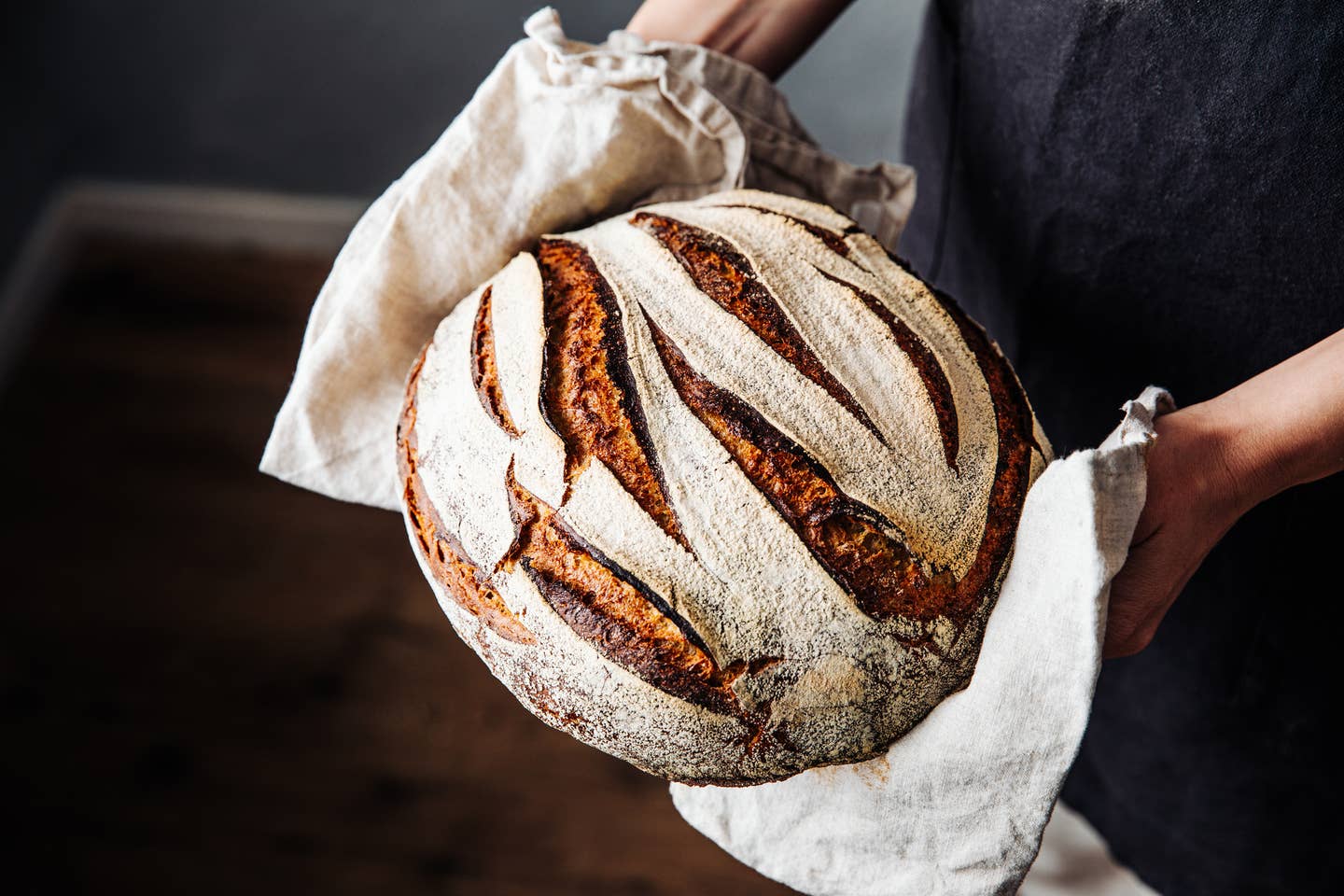
What is the Healthiest Type of Bread? An Expert Answers
While whole wheat bread usually steals the show for being one of the healthiest breads on the planet, don’t overlook rye. Rye’s popularity has been on the rise over the years, with the hashtag #ryebread even trending on social media in recent months.
But if you’ve banished bread from your diet because you’re worried about gaining weight or eating too many carbohydrates, it’s time for a redirect. Chosen wisely, bread can be part of a healthy plant-based diet, and whether you prefer whole wheat or rye, neither is a bad pick. So, what is the healthiest kind of bread? One may actually hold a nutritional edge. Here's what you need to know.
Is Bread Good for You?
Bread has certainly gotten a bad rap throughout the years, with many people eschewing it from their diet. That may be a wise idea for white bread, which is highly processed and contains little nutrients, but not for all bread. There are actually many redeeming qualities about certain breads, namely those that are whole grain. “Bread serves as a vehicle for so many nutritious protein and fat sources as well as veggies when making sandwiches or using it as a side to salad,” says Maryann Walsh, R.D., dietitian and president of Walsh Nutrition in Palm Beach, Fla.
Plus, the Dietary Guidelines for Americans recommends that adults eat at least half of their grains as whole grains, which equates to about three servings (or 48 grams) of whole grains per day, and that’s where bread can come into play. “One slice of 100 percent whole-grain bread counts as a single serving of whole grains,” says Caroline Sluyter, program director of the Oldways Whole Grains Council. Eat a sandwich with 100 percent whole wheat or 100 percent whole rye bread, and you’re two-thirds of the way toward meeting your recommended whole grain intake for the day.
By doing so, you’ll reap the rewards of eating whole grains. “Whole grains are associated with numerous health benefits, including reduced risk of stroke, type 2 diabetes, and heart disease; better weight maintenance; less inflammation; and lower risk of colorectal cancer,” Sluyter says.
And if you’re worried about gaining weight, forego those fears if you’re on a plant-based diet. “You’re likely not getting as many calories from animal sources so you can often incorporate bread more than those who are eating animal sources because they have to fill their calorie needs,” Walsh says. As long as you’re balancing that bread with other plant-based healthy fat and protein sources like nut butter, avocados, and beans and eating within your calorie needs for the day, you can maintain or lose weight.
Is Rye Bread Healthy?
Rye bread is indeed a healthy pick for those plant-based sandwiches as long as you keep one point in mind. “Although whole wheat is a whole grain, rye bread isn’t always a whole grain,” Walsh says. Many rye breads in grocery stores, after all, contain a mix of standard wheat flour, which may not make them whole. To find a rye bread that’s considered whole grain, look at the ingredient list and make sure that ‘whole rye grains’ appear first on the list. You can also look for the Whole Grain Stamp on the product to check yourself.
While there are ample reasons to choose whole wheat bread, rye does come with some interesting advantages. “Rye edges out whole wheat slightly for having more unique health benefits based on available research,” Walsh says.
For starters, rye contains slightly more fiber than whole wheat. Whole rye contains about 15 percent fiber versus 12 percent in whole wheat, Sluyter says.
Rye may even leave you feeling fuller. According to a study in Nutrition Journal, a breakfast containing rye grain versus wheat grain led to greater satiety and reduced hunger before and after lunch. Several studies like one in Plos One and Nutrition Journal have also found that rye bread can improve cholesterol levels. And while this isn’t unique to rye, a study from the Journal of Nutrition showed that whole-grain rye and wheat can improve gut health.
Of course, if you prefer whole wheat, don’t let this discourage you from eating it. But if rye is more your style, slice away. Those vegan Reubens have never sounded better.
Which Bread is Healthiest?
Here’s a side-by-side look at a slice of rye and whole wheat bread.
Rye bread (1 slice – 32 grams)
Calories: 83
Fat: 1.1 grams
Protein: 2.7 grams
Carbohydrates: 15 grams
Fiber: 1.9 grams
Whole wheat bread (1 slice – 32 grams)
Calories: 81
Fat: 1.1 grams
Protein: 4 grams
Carbohydrates: 14 grams
Fiber: 1.9 grams
For more great content about how to live your healthiest, check out the Health & Nutrition stories on The Beet.
More From The Beet






